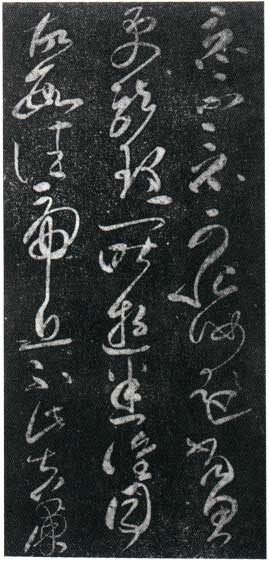Zhang Zhi's birth date is unknown, but he died in the third year of Emperor Xian's reign of the Han Dynasty (about 192 AD). He was born in Jiuquan, Dunhuang (now part of Gansu Province). His courtesy name was Boying, and he was good at Zhangcao. Becoming "Jincao", Zhang Huaiguan's "Shu Duan" said that he "learned the methods of Cui (Yuan) and Du (Cao), so he changed them to become Jincao, and transformed them into something wonderful. The style of the characters is formed in one stroke. , Occasionally there are disconnections, but the blood is continuous, and when it is connected, the Qi is connected to other lines." Wei Dan, the calligrapher of the Wei Dynasty in the Three Kingdoms, called him the "Sage of Grass". King Xizhi of the Jin Dynasty only praised Zhong (Yao) and Zhang (Zhi) calligraphy of Han and Wei Dynasties, and thought that the rest were not worthy of consideration. It had a profound influence on later generations Wang Xizhi and Wang Xianzhi's cursive calligraphy.
Zhang Zhi's spirit of diligently practicing calligraphy has been passed down in history. Jin Weiheng's "Four Types of Calligraphy" records: Zhang Zhi "must write and then practice (boil and dye) the silk in his home; when he comes to the pond to study calligraphy, the pond water will be full of ink." Later generations called calligraphy "Linchi", which originated from this. He was especially good at Zhang Cao and was known as the "Sage of Cao". People at that time cherished his ink to the point of "not leaving out every inch of paper". The evaluation is quite high, especially the cursive writing.









